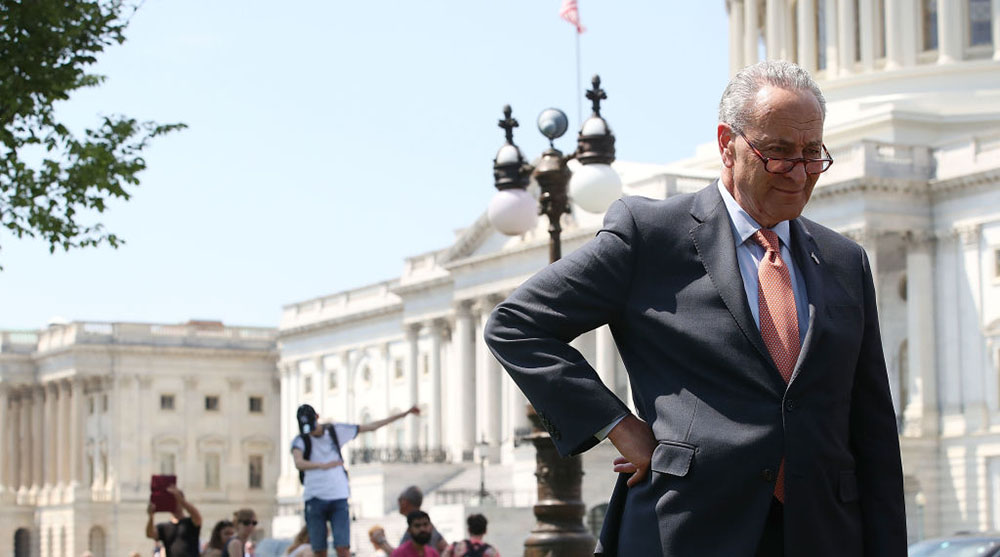The 'new' Democratic party, meant to attract voters in the midterm elections, isn’t much different from the 'old' Democratic party.
Seizing the opportunity created by a stumbling president whose White House seems incapable of fulfilling his biggest campaign promises, Democrats counterattacked last month, touting a new slogan and policies as they look ahead to the 2018 midterm elections. The slogan — “A Better Deal: Better Skills, Better Jobs, Better Wages” — was quickly derided by Twitter wags as reminiscent of Papa John’s Pizza marketing (“Better ingredients, better pizza”). And the policies rolled out a day later were retreads of Hillary Clinton’s policy positions in her failed presidential campaign. It’s tempting to speculate, given this uninspired effort, that Democrats are coasting on the assumption that President Trump is so toxic that their victory in the midterms is assured. But this is the second reassessment the party has performed on itself after devastating political losses in the last three years, and in each case the message to America seems to be: “Don’t worry so much about our ideas: Just trust that we’re on your side.”
Maybe the Democrats’ ideas really are the problem. It’s worth remembering that Trump’s surprise victory last November was not the first major setback that Democrats have suffered since Barack Obama won his historic election in 2008: other than his reelection four years later, it’s pretty much been all downhill. Democrats lost control of the House of Representatives in 2010 and the Senate in 2014. At the state level, the party faced a sustained run of bad results that included losing some 900 local legislative seats, while watching Republicans capture 31 governorships. Republicans now boast 26 state “trifectas” — in which they control the legislature and the governor’s office — compared with just six for Democrats. To comprehend the magnitude of Democratic losses, consider that Republicans hold more power in the states than at any time since the Civil War.
Read the entire piece here on National Review Online
______________________
Steven Malanga is the George M. Yeager Fellow at the Manhattan Institute and a senior editor at City Journal.
The following piece originally appeared in City Journal.
This piece originally appeared in National Review Online
